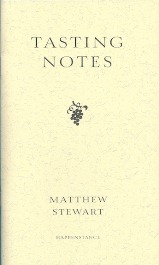reviewed by the Judge
Good taste is exclusive.
The main difference between the subculture of poetry and that of wine is that nobody really pretends to be part of the poetry scene. When it comes to wine, instead, the opposite of erudition is not ignorance but affectation. Enter the dingiest, most raucous pub in England, sit and observe the proceedings for a few hours, and you’ll see everyone acting like wine experts, rolling the wine in the glass before smelling it, then looking at the bottle meditatively, and finally nodding and pursing their lips in appreciation. The reality is that understanding wine, even on a rather simple level, takes much longer than most people know. The complexity and variety is such that most experts are only really experts on one or two regions of a given country (at least where the country has enough wine-making history behind it). Most consumers have never even tasted anything beyond an average Mondavi wine, among other things because cultivating a researched passion for this sublime beverage is so awfully expensive (and it is for this reason that I review poetry instead).
The unexpected thing about TN is that the wines come first. This is at once the pamphlet’s shining achievement, and its fundamental limit.
Tasting Notes, a tiny pamphlet by Matthew Stewart, brings together the two worlds. It cannot be said that he is not qualified. Stewart is the blender and export manager for a cooperative of farmers in Extremadura: his pamphlet is about some of the wines that he exports, the Zaleos. I had the pleasure of picking up the pamphlet at the Poetry Book Fair held in London in early September, where he was offering some samples of his wine (along with a few slices of chorizo, a Spanish cold meat specialty). To say that it enriched the experience of reading the poem about the wine would be an understatement. Poem and wine worked together to bring back a wealth of colours, smells, flavours, images that would be recognised by anyone from the Mediterranean. For a few moments, I might as well have been back in Spain (where I have lived for some years of my life).
The unexpected thing about TN is that the wines come first. Instead of taking inspiration from his vineyards with the finality of writing poems, Stewart seems to have written the poems a posteriori, in homage to the wines. Almost as an afterthought, like the type of letter you jot down for a friend after you’ve finished doing something important. This is at once the pamphlet’s shining achievement, and its fundamental limit. TN is organised in pairs of poems, each pair dedicated to a wine, with a typical ‘back label’ on the left (a satire of the promotional language used for the sale of any beverage) and a brief monologue from the point of view of the individual wine on the right. All of these poems gleam with a genuine love for the subject matter – exactly the kind of thing that makes subcultures like wine and poetry rewarding to engage with. The fact that wines are given a voice as though they were human beings is hardly coincidental. One passage even directly evokes a wine-lover’s sense of reverence: ‘My glycerine falls down the glass, / leaving arch after arch behind, / a silhouetted cathedral / where you’re worshipping yet again.’
On the other hand, the poems are hindered by the fact that you can’t really taste the wines while you’re reading – unless you buy them, of course. But then the pamphlet will cost you almost fifty quid (I did mention that wine was an expensive hobby) and considering that, without the ‘back label’ stanzas, there are only seven (short) poems in total, it’s already overpriced at four pounds. Shorn of the flavours they are describing, the poems struggle to make much sense on their own. They may evoke the values involved in making wine, at least to some extents, but not the wine itself.
I would love to say that TN is a pamphlet for everyone, but really it isn’t. It’s a wonderful little piece, full of sunlight, flavour and atmosphere, but in the hands of someone with only elementary knowledge about (or interest in) wine and the Mediterranean, I cannot imagine it being anything more than a frolic. Then again, when I picked up the pamphlet, Stewart himself described it as a deliberately light piece of work. This lightness remains the pamphlet’s greatest merit, even if it does require an appreciation of the object that it celebrates. Despite the fact that it comes together with a special offer for the wines, it is the exact opposite of the promotionalism that surrounds most commercial enterprises. For this reason I feel safe in closing this review with a shopping advice. Buy a bottle of Zaleo (or all four of them) via the Happenstance shop on their website, and have the pamphlet as a crowning touch to the wine – it will make for a gift of inimitable class. But if what you’re looking for is only Stewart’s poems, and not his trade, you might be better served by Inventing Truth – his other pamphlet, the ‘serious’ one.










